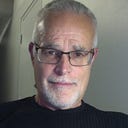Correction: In my response below, I retract the statements regarding the 1% not being rich. I was wrong about the threshold for 1%. In the US, the 1% percentile is $475,000. My household income is below that.
However, I am not wrong about the problem of over-population, and its role in driving up the cost of living in urban areas, as well as being the main driver of pollution and our current level of energy use which is leading to global warming. — CB
======Original Response======
The 1% are not rich. They are, generally speaking, working professionals who live in urban areas, and are indeed just getting by. They are not, by and large, accumulating wealth. The rich are those who are able to accumulate wealth.
The huge increase in the US population has driven up the cost of a home — exponentially so in urban areas. Those who want us to have open borders should reconcile their view with often-heard complaints about the cost of living in urban areas.
I am in the 1%. I am not saving. I don’t buy $7 lattes. I don’t take expensive vacations. My wife and I rent a townhouse. I don’t wear suits, and I shop for clothes once a year, buying a handful of black tee shirts and some slacks. I have a Subaru Crosstrek — not a Maserati.
We live in an up-and-coming suburban area where there is a light rail stop, just outside of Washington DC. The average homeowner around here earns in the $200s at least — you have to, in order to own a home around here. We had a home, but sold it, because the kids are gone, and the mortgage was just too much — about $5200/month, which included $1000/month in local property tax: that’s right, $1000/month for property tax. And it was an average sized house — not a McMansion: three average bedrooms, small study, car port. Very small yard.
I am very familiar with those who make less. I used to, but I am toward the end of my career, and have two master’s degrees, so of course I am doing okay, but I am not accumulating. I am not rich. I can save a little, but not much, because the government takes so friggin’ much. At 63, I don’t have enough to retire — not by a long shot. To retire, we would have to move to a trailer somewhere very far out — we could not retire in the area in which we live.
Our daughter just bought a house outside of DC for about $400K. It’s 500 square feet. She earns much less than I do, but pays less income taxes as a result, so she can afford the house — barely. She is not in the 1%, but she could not afford a typical house in our suburban area. Today, you have to be in the 1% (nationally) to be able to just get by in a suburb that is just outside of Washington DC and many of the other suburban areas — even if you don’t buy $7 lattes and take expensive vacations.
We can thank our population growth for that. And population growth is also the root cause of pollution and global warming by the way, but no one wants to connect those dots because it is not politically popular to do so. The population has now risen above the level that the Earth can easily support: to support the current level of people, we will need to go to extremes to manage our resource usage and output. Over-population is the problem, and it is why the cost of living is so high in urban areas.
It’s time for people to stop vilifying those who are in the 1% — we are not the rich. The rich are the .01%. They are the ones who earn so much that they are able to pay expensive lawyers to stash money overseas. They are the ones who take the expensive vacations. They are the ones who drive Maseratis and live in Great Falls Virginia or other rich enclave areas. They are the ones who go to work only because they choose — not because they have to.
